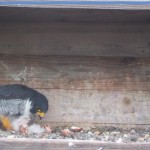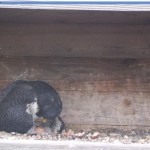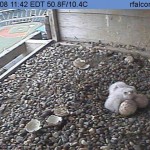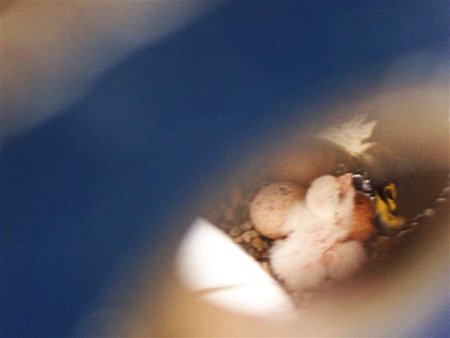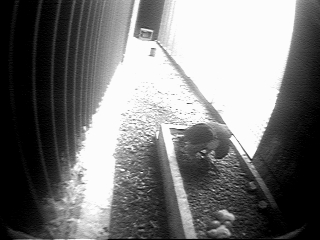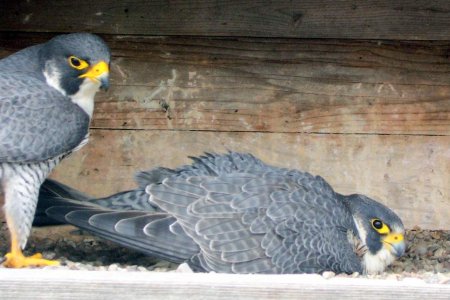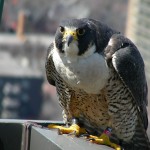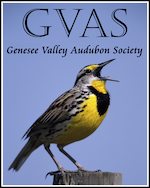Woo Hoo! Hatchlings in Rochester!
Thursday, May 8th, 2008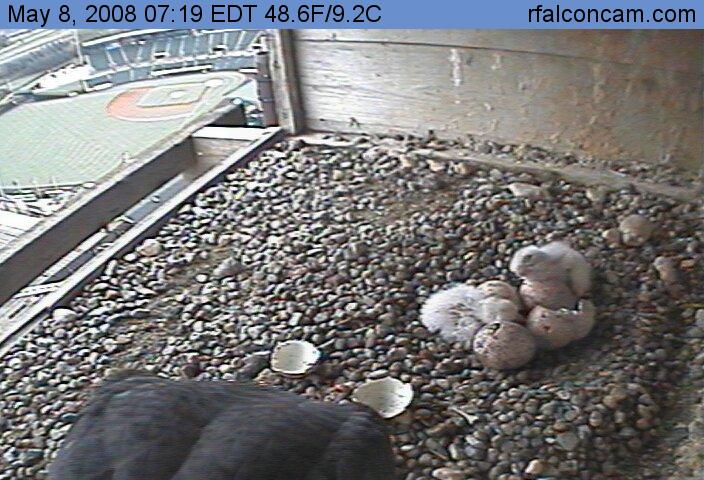
UPDATE! Scroll to the bottom for the most recent pictures and news!
Mariah and Kaver’s first two eyases hatched in the early hours of this morning. Mariah has been keeping the new nestlings protected from the cool damp weather we’re having in Rochester today, so it’s hard to tell exactly when the hatches occurred. The morning light and a quick brooding change gave us a clear look at these two, along with fragments of their eggs and the remaining three intact ones.
Here’s Kaver taking his turn keeping everyone under cover, and giving us another look at the two fluffy white eyases as he settles in. We’re ecstatic to welcome these two hatchlings to the Rochester Peregrine family. When will the others make their debut? We can’t say for sure, but hatching usually takes place over 2-3 days so keep your eyes glued to the Rochester Falconcam and maybe you’ll be the first to spot the latest eyas hatching!
UPDATE!
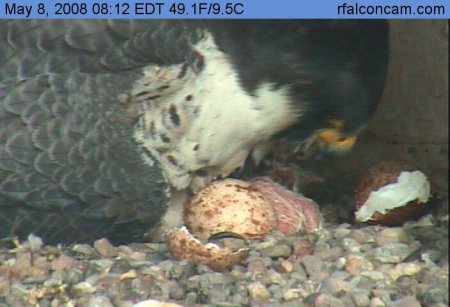
Here’s Mariah’s third eyas, which just hatched a few minutes after 8:00 this morning! It’s behind the egg shell in this picture, with its feathers still matted and wet. Mariah quickly covered this newest arrival to keep it warm along with its siblings. Keep watching to see if you can catch a glimpse!
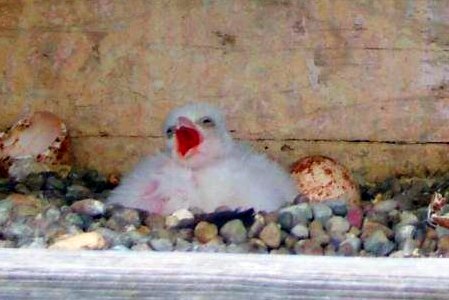
Here’s a shot from late this morning of one of the eyases doing one of the things they do best– begging for food. When you consider that these chicks will be fully grown in only six weeks, it’s no surprise to find that they’re hungry all the time!
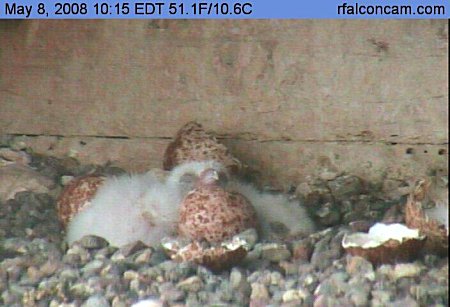
Here’s the other thing they do really well– sleep!
At this young age, Mariah or Kaver will keep the hatchlings covered almost full time. The baby falcons aren’t old enough to regulate their own body temperature yet. Mariah keeps them out of the wind by lowering her wings on either side of the eyases, as you can see in the picture at the right. We’re lucky to get a glimpse of them uncovered when Mariah or Kaver take a brief break. Don’t worry though. One of the parents will be back within a few minutes to take up the task of protecting their precious offspring once more. You can find more information about the early lives of Peregrines in this article from last year.
-Jess
